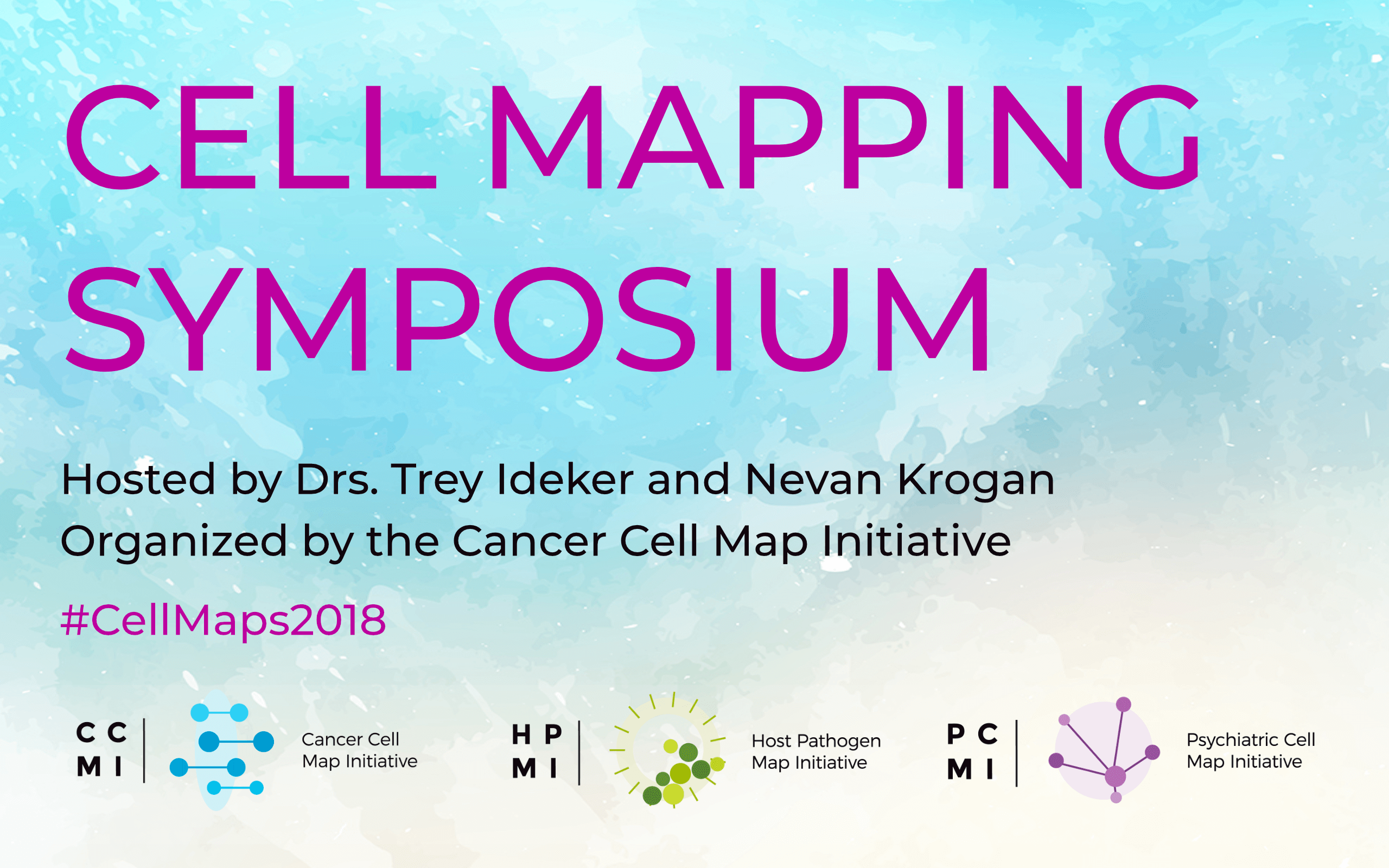
9:00 AM-6:00 PM
ANNOUNCEMENT: We are excited to announce that the 2018 Cell Mapping Symposium was live-streamed and recorded videos are now available on YouTube. Click HERE to view a playlist of all videos. Additionally, each speaker's individual video recording are linked below.
The Cell Mapping Symposium will address cell mapping as it relates to cancer, psychiatric disorders, infectious diseases and technology development. A major motivation of this symposium is the realization that although much insight has been gained from large genome sequencing projects, effort now needs to be placed on extracting mechanistic insight from these data. These efforts include using proteomic, biochemical, genetic and structural biology approaches to generate cellular maps that can be used to interpret this genomic data from a variety of different disease areas.
This exciting, full-day symposium will feature talks from a variety of distinguished speakers and will be held at the Sanford Consortium for Regenerative Medicine in La Jolla, CA (MAP). The symposium begins at 9:00 AM on Monday, October 29, 2018 and will conclude with an evening reception at 6:00 PM. Refreshments and lunch are provided. Free to attend, but registration is required. Register Here (SOLD OUT).
About Cell Mapping
The ability of a cell to respond to its environment depends on the actions of the proteins encoded by the DNA in the genome. However, most proteins don’t work alone. They work with other proteins in teams called complexes. The principles of “cell mapping” are to figure out which proteins work together in complexes. Mapping can be done in different disease states or in the presence of different chemical drugs. To accomplish these goals, researchers augment these cell maps with genetic maps to derive quantitative insights into how biological functions of cells can be restored.
One of the main objectives of this symposium is to discuss technological advances in extracting mechanistic insight from these large genome sequencing projects. These efforts include using proteomic, biochemical, genetic, and structural biology approaches to generate cellular maps that can be used to interpret this genomic data from a variety of different disease areas.
Schedule (*subject to change)
Session 1: Mapping Technology
Session 2: Psychiatric Mapping
Session 3: Cancer Mapping
Session 4: Infectious Disease Mapping
Parking
Free parking at the Sanford Consortium's east lot will be available on a first-come, first-serve basis. Hourly parking is also available for purchase at the pay station. Additional parking can be found near the Torrey Pines Gliderport, which is within walking distance. The UCSD Shuttle Route has drop off locations within walking distance to the Sanford Consortium.
No Show Policy
If you are unable to attend for any reason, please cancel your registration or email (hello@ccmi.org) at least 48 hours prior to the event. A no-show can limit your ability to book our events in the future. Thank you in advance for your cooperation.
Contact Us
Cancer Cell Map Initiative
hello@ccmi.org
#CellMaps2018
Subscribe to our calendar and stay updated on the latest events.